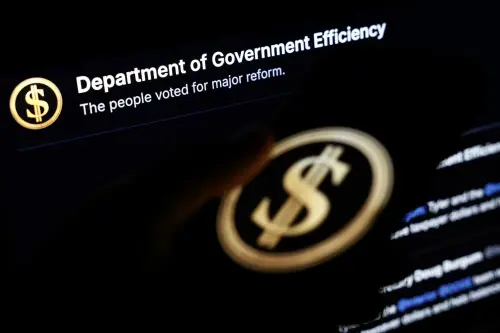The arrest in London today on charges of money laundering of one of Pakistan’s most notorious politicians, Altaf Hussain, threatens to plunge the country’s biggest city, Karachi, into turmoil, and adds even more instability to the country’s future. But it also a chance for justice to be served to a very dangerous man.
Altaf Hussain has lived in exile in London since he fled Pakistan in 1991 as a wanted gangster. He created a political party, the Muttahida Qaumi Movement (MQM), in the early 1980s to advance the interests of Muslims who had fled India during the bloody partition of Britain’s south Asian empire in 1947. The Mohajirs who would in Hussain’s time form the backbone of MQM had flocked to Karachi in the late 1940s and early 1950s and transformed it almost overnight from a sleepy little port into Pakistan’s first capital and biggest city. But they felt discriminated against by the local political bosses and feudal lords who ran the city.
The MQM was assisted in its birth in the early 1980s by Pakistan’s then military dictator Zia ul Huq and his intelligence service, the ISI, as a foil to Zia’s biggest enemy, the Bhutto family, which had historically dominated Karachi and the surrounding Sindh province. MQM toughs fought street battles with Bhutto supporters, and the city soon acquired its nickname as the murder capital of the world.
But the ISI lost control of Hussain and the MQM by the late 1980s, and Altaf tried to expand his party beyond the Mohajir constituency with only limited results. Wanted for a multitude of crimes including murder and extortion, Altaf fled to the UK. He claims he narrowly escaped assassination just before leaving Pakistan in December 1991. He asked for asylum in London.
From his British base, Altaf runs the MQM as a private party with him in complete control. He is called “the leader” by his supporters, and they live in terror of his ruthlessness. Any hint of disloyalty can lead to death. The MQM is more a cult than a party, with Altaf Hussain at the top.
Thanks to his hold on the Mohajirs, Altaf controls a block of 20 or so deputies in the Pakistani legislature. As a swing block loyal to one man, the MQM has been courted by Pakistani politicians and has switched sides in the country’s fractured politics repeatedly. His party thugs terrorize his followers and his enemies alike.
Hussain’s political views are an odd mixture. He has called the 1947 partition the “biggest blunder in history” and advocates peace with India. He is violently opposed to the Pakistani Taliban, which increasingly contests his control of Karachi. Some of his lieutenants have served capably and honestly as political leaders in Karachi and elsewhere, although many have been accused of corruption.
The British government has long tolerated his presence in London, but its security and police forces have always monitored his actions carefully, especially since a senior MQM lieutenant was murdered in the UK in 2010 after rumors spread that he was leaving the MQM to set up a rival party.
Hussain has been suspected of ordering executions and assassinations while encouraging extortion, tax violations, and violence in Karachi for years. But a criminal case has been hard to develop that would hold up in court. His house has been searched on previous occasions, but apparently no evidence was found to convict him before this arrest. Successive British prime ministers have also worried about the political fallout from arresting “the leader” both in unstable Pakistan and among Britain’s hundreds of thousands of Pakistani immigrants.
Prime Minister David Cameron is undoubtedly concerned about blowback, and the British consulate in Karachi is already closed. But the PM is also aware that Hussain’s quarter-century asylum in London has allowed him to help destabilize a crucial country. Pakistan has the fastest-growing nuclear arsenal in the world. It is home to Al Qaeda, the Taliban, Lashkar e Tayyiba, and a host of other terrorists, and its ISI intelligence service operates as a state within the state outside the elected government’s control. It’s a combustible mix. The MQM has added to the mixture another unpredictable danger.
Even if a case can now be brought to try Hussain, it will probably be drawn out in the British courts for years. Altaf will still run the MQM from a prison cell. Nonetheless, Pakistan needs accountability and justice desperately if it is ever to become a healthy nation.
This article was originally published by The Daily Beast.
The Brookings Institution is committed to quality, independence, and impact.
We are supported by a diverse array of funders. In line with our values and policies, each Brookings publication represents the sole views of its author(s).



Commentary
Op-edAltaf Hussain Finally Arrested in London; Can His MQM Be Neutralized?
June 3, 2014